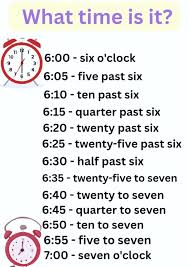What Time Is It? Understanding Time Zones and Their Impact

The Importance of Knowing the Time
In today’s globalised world, knowing the time can be crucial for effective communication, travel arrangements, and international business operations. The simple question, “what time is it?”, might seem trivial, yet it carries significant weight across various aspects of modern life.
Understanding Time Zones
Time zones were introduced in the 19th century to standardise time across different geographical regions. The Earth is divided into 24 time zones, each one generally covering 15 degrees of longitude. This division is based on the Earth’s rotation, where one full rotation takes approximately 24 hours.
In the UK, for example, we follow Greenwich Mean Time (GMT) during the winter months, but switch to British Summer Time (BST) in the summer, moving the clock forward by one hour. As a result, the question, “what time is it?” can differ significantly based on your location and the time of year.
Current Events Related to Timekeeping
As technology progresses, new methods of keeping and measuring time continue to emerge. With the advent of smartphones and smart devices, people can instantly access the current time in any part of the world. Major tech companies are releasing new devices that sync with time and date information, further globalising the concept of time.
Moreover, recent discussions regarding Daylight Saving Time (DST) have gained attention. Some regions are considering abolishing DST altogether, which could affect how we perceive and adapt to time changes. Countries like the European Union have debated the necessity of these seasonal clock changes, leading to conversations about the most effective ways to keep time.
Conclusion: The Global Impact of Time
In a world where businesses span the globe and friendships cross international borders, understanding time and its intricacies is more important than ever. Whether scheduling a meeting with colleagues halfway across the world or planning a family gathering, the need to know the current time in various locations is integral to everyday life.
As timekeeping technology evolves, we can expect further changes in how we manage our schedules and engage with each other across different time zones. Being aware of the time—wherever you are and wherever you need to be—is essential in our fast-paced, interconnected world.









